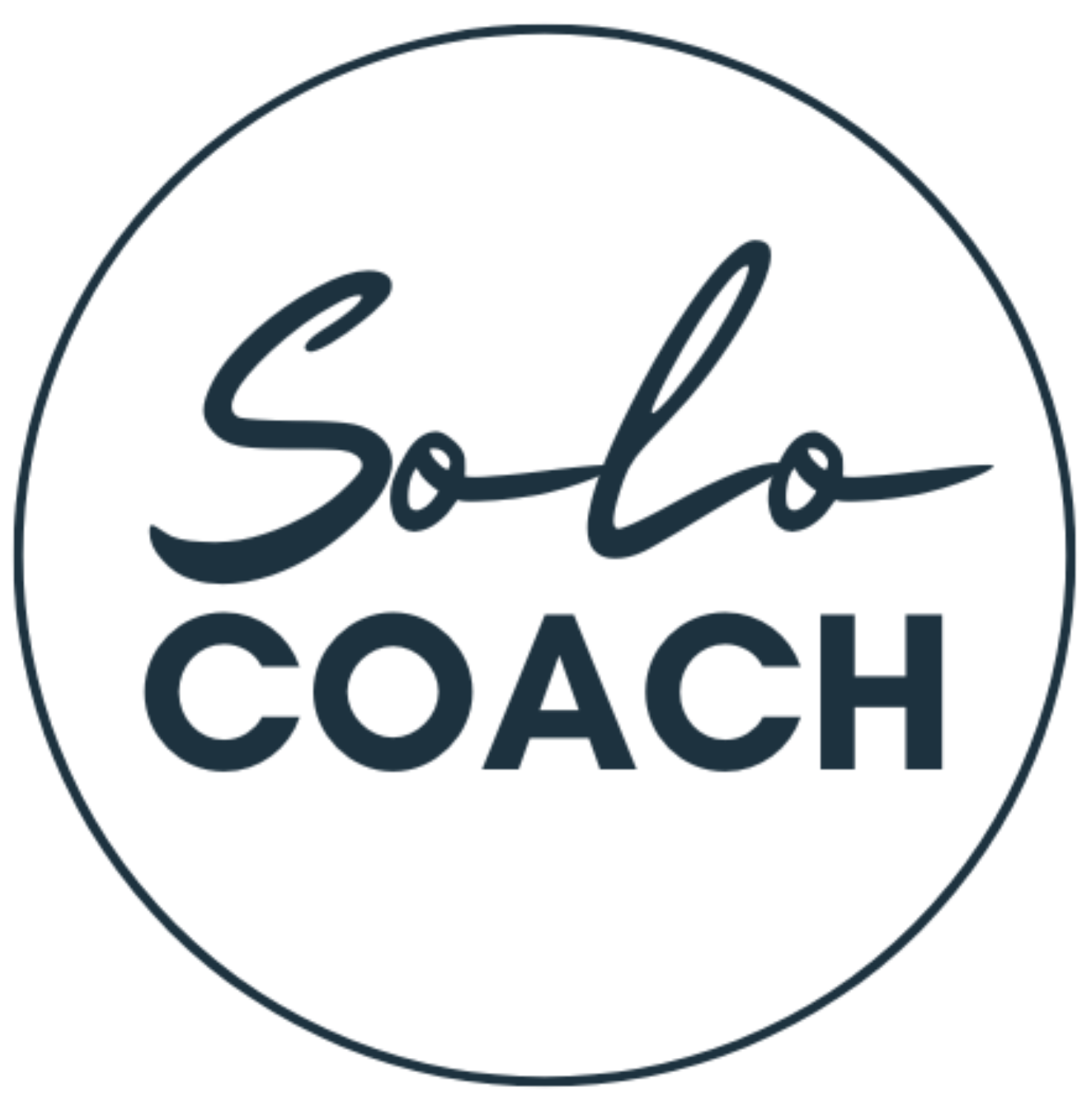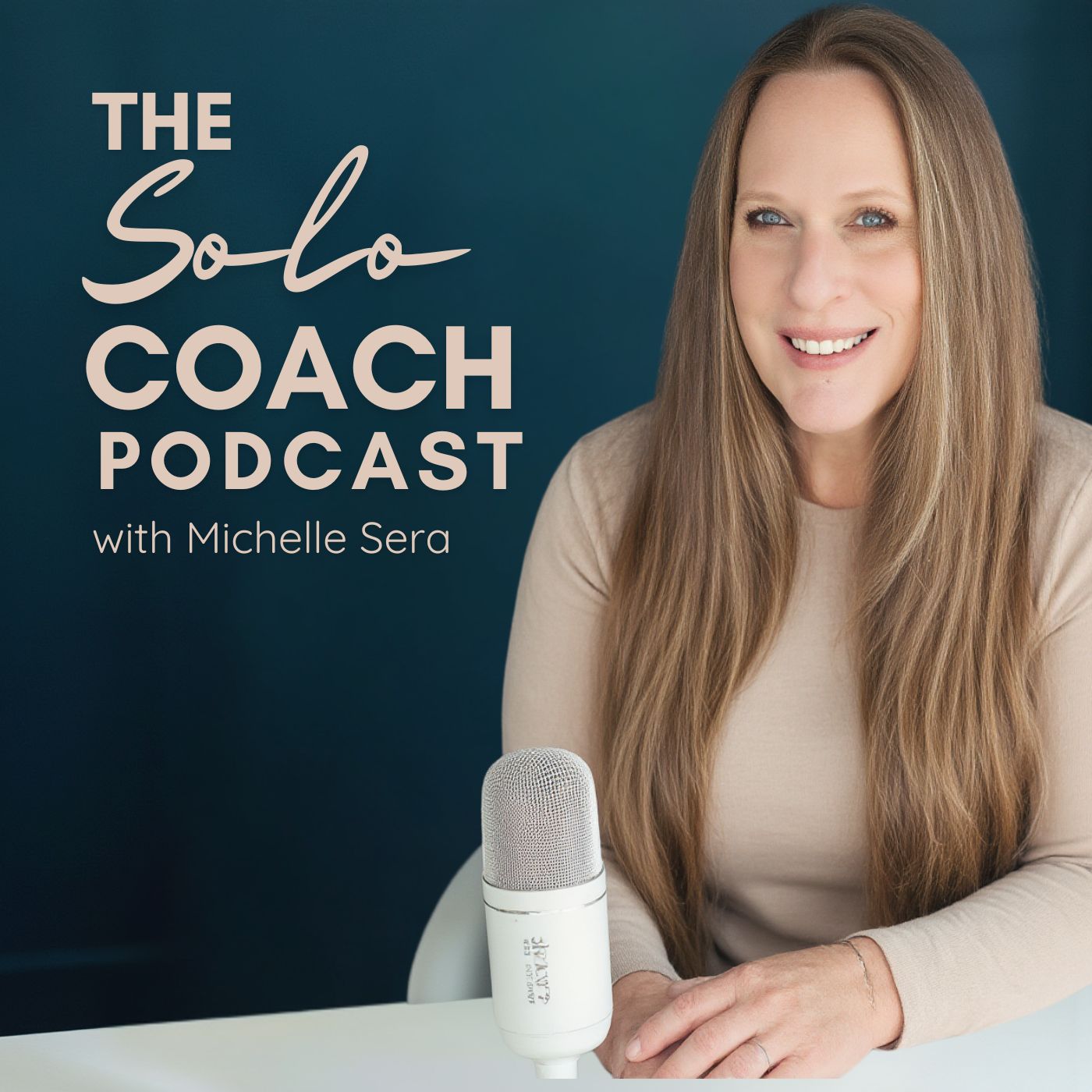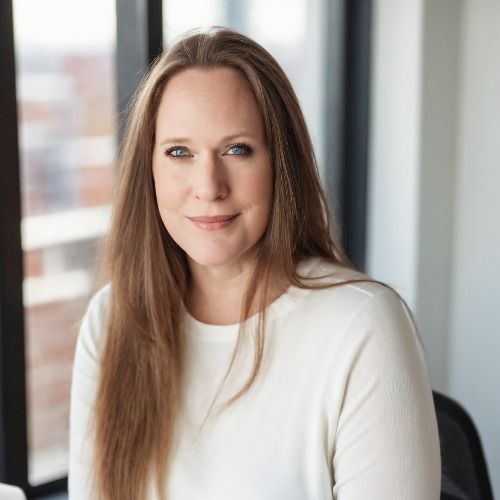Episode 20
How to Use Your Story to Attract Coaching Clients (Without Oversharing)
Think you need a perfectly polished brand or non-stop social content to attract coaching clients? Think again.
In this episode of The Solo Coach Podcast, we’re diving into the most underrated visibility strategy out there—your story. Strategic storytelling creates emotional connection, filters in the right-fit clients, and builds trust like no other marketing tool can.
If you’ve ever felt awkward showing up online or worried about saying the “right” thing, this episode is for you.
We’ll explore:
● Why your story—not your polish—is your most powerful visibility tool
● How to use personal moments without oversharing
● Where to weave storytelling into your marketing to build deeper trust
As a solo coach building an authentic, aligned business, this episode will help you ditch the pressure to be everywhere and start using your truth to attract the right people.
What You’ll Learn:
● How to tell stories that connect without oversharing
● The key places to use story in your content strategy
● How storytelling helps filter in aligned clients and build emotional resonance
Resources Mentioned:
● Subscribe to the Find Coaching Clients Newsletter
Support the Show:
If this episode resonated with you, please leave a review! It helps other solo coaches discover the show and grow their businesses with authenticity and ease.
Visit my website
Transcript
How to use your story to attract coaching clients the real visibility
Speaker:strategy that is so underrated.
Speaker:There's a lot of pressure in the.
Speaker:Coaching space to be more visible, post more, share more, talk more.
Speaker:Yes, there is.
Speaker:Visibility is important, but that doesn't mean.
Speaker:You have to be everywhere.
Speaker:It's not effective if your people aren't everywhere too.
Speaker:You don't need a perfectly curated content.
Speaker:Calendar or a polished personal brand either.
Speaker:Definitely not a polished brand.
Speaker:Certainly work towards consistency in branding across the board, right?
Speaker:That helps for to you to stick.
Speaker:In people's minds more.
Speaker:Don't worry about it being polished.
Speaker:What you really need is this a story you're willing to tell.
Speaker:Because in a crowded market, the coaches who attract the most aligned clients
Speaker:aren't the loudest, they're the realest.
Speaker:Why storytelling is your most powerful client attraction tool when you're
Speaker:building a coaching business, you'll hear a lot about funnels, email
Speaker:marketing and strategies.
Speaker:I'm a big fan, right?
Speaker:You're going to hear me talk about these things all the time.
Speaker:But what actually draws people in, what makes them able to relate to you
Speaker:and trust you, is your truth.
Speaker:Your story is what creates connection.
Speaker:It's what makes a potential client pause and think, she gets me.
Speaker:She's been where I am.
Speaker:She's the one I want to learn from.
Speaker:That's not something you can fake and it's not something you can replicate
Speaker:with fancy marketing copy either.
Speaker:It comes from being willing to share your truth in a way that feels grounded,
Speaker:integrated and intentional.
Speaker:But don't worry, you don't need to over share to be real.
Speaker:Using your story to attract clients does not mean dumping your
Speaker:entire life story online.
Speaker:Actually, I don't recommend it.
Speaker:I mean, you could certainly put it in a book, but you don't have to
Speaker:fill your emails with it.
Speaker:Strategic storytelling means choosing moments that matter.
Speaker:And I want to repeat that.
Speaker:Like strategic storytelling means choosing moments that matter and moments
Speaker:that your audience can relate to.
Speaker:It means reflecting on your own turning points, beliefs and breakthroughs and
Speaker:sharing those pieces in a way that invites your audience to see themselves in it.
Speaker:Don't be afraid to show that you're flawed, because we all are.
Speaker:Here are a few good questions to guide you.
Speaker:Is this part of my story resolved or integrated?
Speaker:Yeah, like can I tell this part of my story?
Speaker:Is it resolved?
Speaker:Can Have I moved past it so now it's something I can reflect on and actually
Speaker:provide value to my audience through does this reflect a belief or a
Speaker:challenge my ideal client is facing?
Speaker:That I've already faced.
Speaker:Can I use this to inspire, clarify, or encourage someone else?
Speaker:If yes, then you've got a powerful story worth sharing.
Speaker:Where to use your story in your marketing if you want to attract coaching clients
Speaker:with authenticity, you don't have to become a content machine.
Speaker:Although admittedly I have been told that that's what I am, a content machine.
Speaker:And for those people who are in my inner circle, you know that I'm experimenting
Speaker:with that to find what I actually enjoy, what I love, and what
Speaker:I want to keep doing. Right?
Speaker:So it's okay to be a content machine if that's what you really enjoy doing.
Speaker:You have fun with it, but don't feel like you have to become that.
Speaker:You just have to be consistent in the way you share your story across
Speaker:your marketing ecosystem.
Speaker:One really good story can create a movement.
Speaker:Truly, I've seen it happen.
Speaker:Here are a few key places to start your email welcome sequence where trust is
Speaker:built fastest I have an email welcome sequence.
Speaker:I have it pretty much on hold at the moment because I'm I'm going to say I'm in
Speaker:the midst of and that's not true because I started it and then stopped.
Speaker:But I'm getting back to it.
Speaker:I have a plan in place to revise and kind of renew and refresh my
Speaker:welcome series and so I have.
Speaker:It on hold temporarily.
Speaker:But the original welcome series is very story based.
Speaker:Every email tells a story like the stalker at my door.
Speaker:They told my mother to not bother when I was born.
Speaker:You know, these like hooks that bring you in and are emotional.
Speaker:And I have had people and this has been because that welcome sequence
Speaker:has been in place for years.
Speaker:I have people still up until the time that I paused it, hit reply back to
Speaker:say they could relate to my story.
Speaker:They would share a story of their own and it was just super, super powerful.
Speaker:So I'm still keeping many elements of the story.
Speaker:I'm just refreshing and updating.
Speaker:But it's a powerful thing.
Speaker:Point being so email welcome sequence is a great place to put your story because for
Speaker:those people who are brand new to your community, it gives them a
Speaker:chance to get to know you.
Speaker:And you know, oftentimes people will even say when you use story very strategically
Speaker:and effectively and you're not afraid to be vulnerable and to share, people
Speaker:will feel like they know you.
Speaker:And that's so huge.
Speaker:It's so huge.
Speaker:You can share your story in social posts that introduce or reintroduce you in
Speaker:your about section of your website.
Speaker:You can launch in your Launch or sales email.
Speaker:So you can also use story in any of your emails.
Speaker:You can even use story on sales pages.
Speaker:You can use story when you speak in seminars or in online summits
Speaker:or part of a signature speech.
Speaker:If you're, if you're a speaker, you can use it in guest podcast interviews
Speaker:or other collaborations.
Speaker:And hey, your story doesn't have to be told all at once.
Speaker:You can reveal it in layers, one piece at a time, letting people
Speaker:get to know the real you.
Speaker:Behind the business.
Speaker:It's part of what I did in my welcome email series is I think there was about
Speaker:seven or eight emails that I told stories in each and every one.
Speaker:And so it pulled people through, waiting because I would always hint, you know, in
Speaker:one email at the end, I would hint to the next story that I was going to tell so
Speaker:that they're watching for that story to show up in their inbox.
Speaker:Storytelling and client readiness go hand in hand.
Speaker:One of the most overlooked parts of storytelling is how it helps
Speaker:qualify the right clients.
Speaker:When you share who you are, not just what you offer, you invite the people who
Speaker:resonate with your path to take their own next step.
Speaker:You also give potential clients a glimpse into what it feels like to work with you.
Speaker:They get to hear your voice, maybe if you have, you know, if they're listening to
Speaker:parts of your story in an audio format or video format, they get to feel
Speaker:your values and sense your energy.
Speaker:Yeah, it doesn't matter what the format is, what the medium is, they're
Speaker:going to sense your energy.
Speaker:And this is what filters in the right fit clients, the ones who
Speaker:are aligned and ready.
Speaker:I mean, I want you to think about this.
Speaker:If you, you know, this is something I encounter frequently is
Speaker:difficulty for coaches, difficulty in finding their voice because a lot of times
Speaker:they're coming from a more technical, professional background that required that
Speaker:they keep a certain professional voice with like the blinders on.
Speaker:Right. Or the, or boundaries.
Speaker:And they couldn't deviate from this certain voice.
Speaker:And so when it comes to their coaching business, then they go right into
Speaker:that professional writing mode. Right.
Speaker:Or speaking mode.
Speaker:And, you know, there's benefits to that.
Speaker:But in a coaching business, when you need to be able to connect and your, your
Speaker:audience needs to be able to relate to you, that's just not going to land.
Speaker:They can't relate to you.
Speaker:They can't connect.
Speaker:So when they, when you share your story again, whether that's in written format,
Speaker:video, audio, doesn't matter what it is, they're going to sense your energy and
Speaker:you'll, you're able to filter out the clients that are not a fit for you and
Speaker:filter in the clients that are a right fit for you.
Speaker:So it's another way of.
Speaker:Because I just today I had someone share with me their concerns about
Speaker:attracting the wrong clients.
Speaker:Like we were talking about certain pain points and they said, yes, that's true,
Speaker:but I don't want to attract this, you know, type of client, this specific kind.
Speaker:And this is, you know, this is one way because you're going to have filters in
Speaker:place in all of your marketing to help bring in the, the right fit client and
Speaker:filter out the client who is not a fit for you.
Speaker:And this is just another way, right?
Speaker:Another way to do that.
Speaker:You don't have to be louder, just truer.
Speaker:I love the idea of that.
Speaker:Just be truer, be transparent, be okay with being vulnerable.
Speaker:Be you.
Speaker:If you've been hiding behind polished messaging or overthinking what you should
Speaker:say, this is your invitation to shift that.
Speaker:The over polished message does not make an emotional connection.
Speaker:Yes, you can create an appeal for an aspirational identity and that can work in
Speaker:certain kinds of brands, but for most of us as coaches, it doesn't work.
Speaker:And you know, this is going off on a little bit of a tangent, but also I'll
Speaker:give you examples like a high level lifestyle.
Speaker:So coaches who represent a certain lifestyle, like a super, like a
Speaker:world traveler and super wealthy. Right.
Speaker:Super posh and luxury luxurious.
Speaker:You know, for that matter, someone who coaches around wealth management.
Speaker:Right.
Speaker:There's a certain aspirational identity that comes with that brand and there
Speaker:better be some stories behind that. Right?
Speaker:But for most of us, aspirational identity will play a part, but it isn't
Speaker:going to be the leading factor.
Speaker:And in fact, so that polished message, it's not how polished the message is
Speaker:so much as how resonant is the message.
Speaker:How much does it connect with your audience?
Speaker:You don't need to be everywhere.
Speaker:You need to share who you really are, flaws and all.
Speaker:That's how you build a coaching business that lasts.
Speaker:That's how you turn truth into magnetism.




